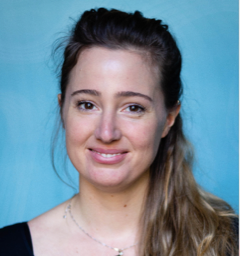Katharina Maria Wuropulos researches the sociology of violence, global violent conflicts, the sociology of social problems and problematisations, as well as the innovative and failing attempts to solve such problematisations.
For her PhD on everyday life and violence, which combines insights from sociology and science and technology studies, Katharina examined how people problematise violence, as well as the imaginaries and practices of solutions to violence. For the PhD, she conducted seven months of ethnographic research with youths in Malmö, Sweden. Before her research position at HSU, she was a researcher at Bundeswehr University München and Augsburg University. For the duration of the PhD, Katharina was a fellow at the Research School on Peace and Conflict at the Peace Research Institute Oslo. She studied at Uppsala University, Heidelberg University, and Bologna University. She has previously held a variety of positions (consultancies, fellowships and traineeships) at GIZ in Brussels, at the German French research institute Centre Marc Bloch in Berlin, at the Heidelberg Conflict Barometer, and at different innovation laboratories on the SDGs (amongst others the Unleash innovation lab and Stanford University’s peace innovation lab).
At HSU, Katharina engages in the research project “Solidarity through Security? Discourses, Interactions and Practices of European Solidarity in the Field of Security” (ZUSE for short) funded by the Federal Ministry of Education and Research. ZUSE is a joint research project of the Institute for Peace Research and Security Policy at the University of Hamburg (IFSH), the University of Tübingen, and HSU.
As part of ZUSE, the HSU project team focusses on the relevance of security-related imaginaries of Europe in everyday contexts, asking: in which social processes are imaginaries of »(in-)security« and togetherness produced? How do they articulate in everyday experiences? How do they change?
To answer these questions the project team looks at an empirical field that is particularly marked by conflicts between ideals of European solidarity and togetherness on the one hand, and European security interests on the other: places of first arrival in Europe for refugees from the Global South. In 2022 Katharina conducted ethnographic research at Europe’s topographical periphery at the Moldovan-Ukrainian border, in Chisinau, Moldova, and in rural Romania, as well as in Athens, on Lesvos, and Chios, Greece.

Letzte Änderung: 3. June 2024